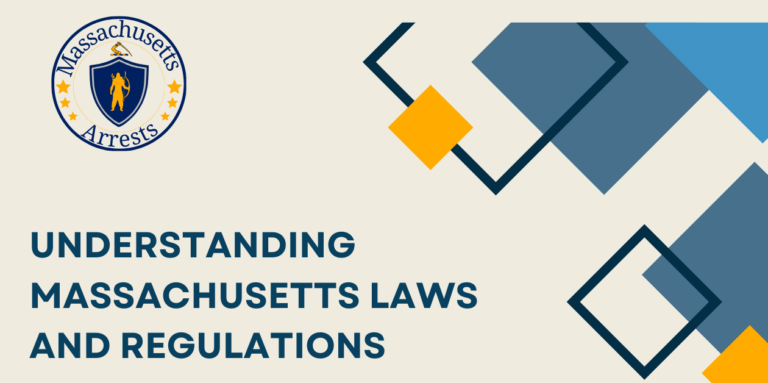Massachusetts Traffic Laws
Driving in Massachusetts requires a solid understanding of the state’s traffic laws. Whether you’re a long-time resident or just passing through, it’s important to know the rules of the road to ensure your safety and the safety of others. From speed limits to right-of-way, Massachusetts Traffic Laws cover a wide range of regulations designed to keep traffic flowing smoothly and prevent accidents.
In this comprehensive guide, we will delve into the intricacies of Massachusetts Traffic Laws, providing you with the knowledge you need to navigate the roads with confidence. From common violations to lesser-known regulations, we’ll explore every aspect of driving in the Bay State. So buckle up and get ready to explore the rules that govern Massachusetts roads. By the end of this guide, you’ll be well-equipped to handle any driving situation that comes your way.
Understanding Speed Limits
One of the most important aspects of Massachusetts Traffic Laws is understanding speed limits. Speed limits are set to ensure the safety of all drivers on the road. Exceeding the speed limit not only puts yourself at risk but also endangers the lives of others. It’s crucial to familiarize yourself with the different speed limits in various areas, such as residential zones, highways, and school zones.
Right-of-Way Rules
Knowing who has the right-of-way in different situations is essential for safe driving. Massachusetts Traffic Laws provide clear guidelines on when to yield and when to proceed. Understanding these rules will help you navigate intersections, roundabouts, and other traffic scenarios with confidence. Always be cautious and yield to other drivers when required, as it promotes harmony on the road and prevents accidents.
Safe Lane Changing
Changing lanes can be a challenging maneuver, especially in heavy traffic. Massachusetts Traffic Laws outline the proper techniques for safe lane changing. It’s important to use your turn signals to indicate your intention to change lanes and check your blind spots before making any maneuvers. Avoid sudden lane changes and always yield to other vehicles. By following these rules, you can minimize the risk of accidents and maintain a smooth flow of traffic.
Understanding Traffic Signals
Traffic signals play a crucial role in regulating the flow of vehicles on Massachusetts roads. It’s vital to understand the meaning of different traffic signals, including red, green, and yellow lights. Always obey traffic signals and come to a complete stop when required. Failing to do so can result in serious consequences, such as collisions or traffic violations.
Dealing with Pedestrians
As a responsible driver, it’s important to be mindful of pedestrians and prioritize their safety. Massachusetts Traffic Laws emphasize the importance of yielding to pedestrians at crosswalks and respecting their right-of-way. Be vigilant, especially in areas with heavy foot traffic, such as school zones or urban areas. By being considerate and cautious, you can help create a safer environment for everyone on the road.
Driving Under the Influence
Operating a vehicle under the influence of alcohol or drugs is not only illegal but also extremely dangerous. Massachusetts Traffic Laws have strict penalties for driving under the influence (DUI). It’s crucial to understand the legal blood alcohol concentration (BAC) limits and never drive if you’re impaired. By making responsible choices and avoiding DUI, you can protect yourself and others from the devastating consequences of impaired driving.
FAQs
What are the speed limits on Massachusetts highways?
The speed limits on Massachusetts highways vary depending on the type of road. The maximum speed limit on rural interstates is generally 65 mph, while on urban interstates it is usually 55 mph. For non-interstate highways, the speed limit is typically 45 mph, unless otherwise posted.
Do I need to wear a seatbelt while driving in Massachusetts?
Yes, wearing a seatbelt is mandatory for all drivers and passengers in Massachusetts. Failure to wear a seatbelt can result in fines and penalties.
What are the consequences of driving under the influence (DUI) in Massachusetts?
Driving under the influence of alcohol or drugs is a serious offense in Massachusetts. The consequences of a DUI conviction can include license suspension, fines, mandatory alcohol education programs, and even imprisonment. The severity of the penalties may vary depending on factors such as the offender’s blood alcohol concentration and prior convictions.
Are cell phone use and texting while driving allowed in Massachusetts?
No, the use of handheld cell phones and texting while driving is prohibited in Massachusetts. Drivers are only permitted to use hands-free devices to make or receive calls while driving. Violating these laws can result in fines and penalties.
What are the rules regarding child passenger safety in Massachusetts?
In Massachusetts, children under the age of 8 and under 57 inches in height must be secured in a federally approved child passenger restraint. The type of restraint required depends on the child’s age, weight, and height. Failure to comply with these rules can lead to fines and penalties.
What should I do if I receive a traffic ticket in Massachusetts?
If you receive a traffic ticket in Massachusetts, you have the option to pay the fine or contest the ticket in court. It is advisable to consult with an attorney to understand the potential consequences and explore your legal options. Ignoring a traffic ticket can result in additional fines and the suspension of your driver’s license.







